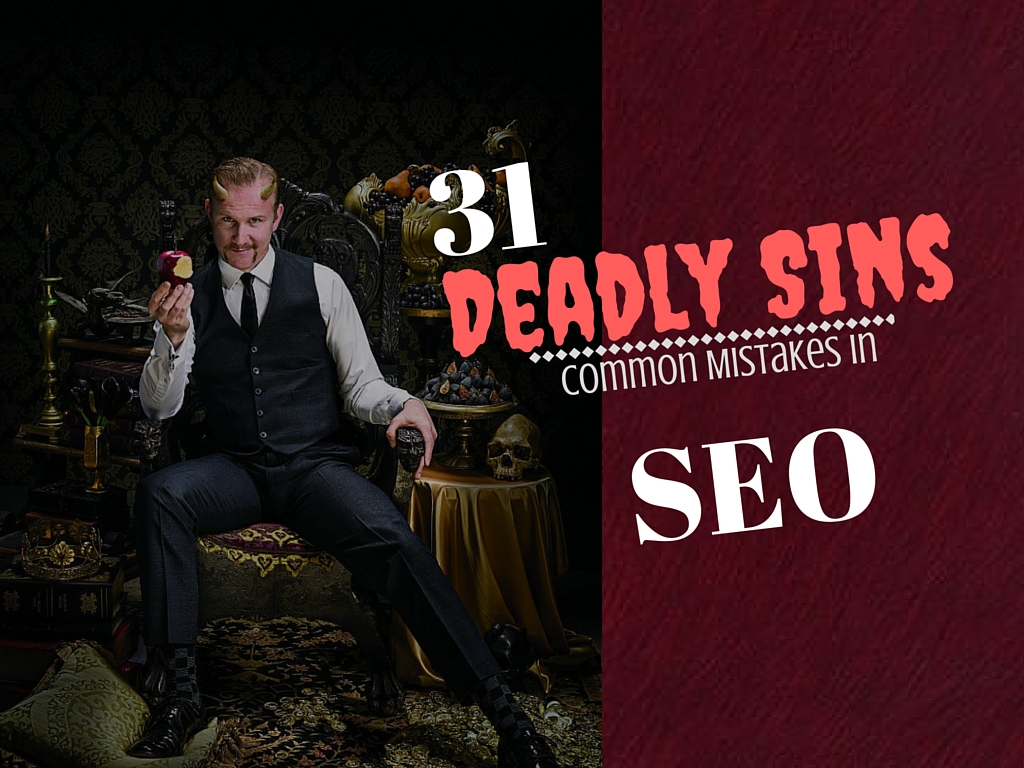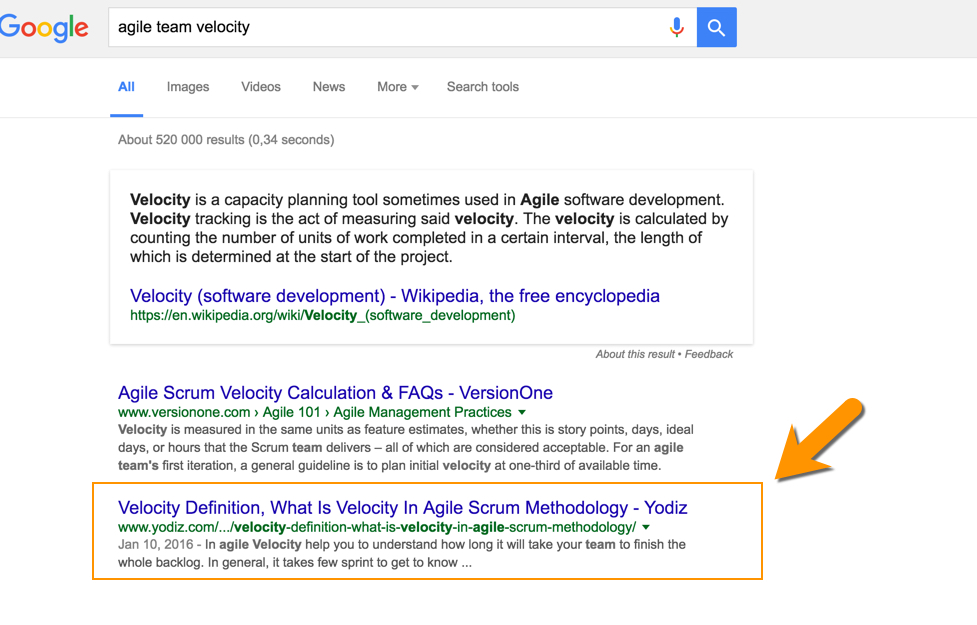
Most Common Bad SEO Mistakes and Practices To Avoid
SEO is very simple, it provide really good results by improved search traffic if it’s followed properly. These rules which we often called best practices of SEO by search engines, these practices are not a hidden secret, those rules and guidelines are there to make sure that search engine will be able to provide the quality content to its users, not showing some web page that stuffed with keywords.
SEO Best practice Guidelines from Google
Before we go into more detail, if you are a blogger, website owner or digital marketing professional, you must read those useful guidelines from google
Deadly Sins, Most Common Bad Mistakes in SEO
There are bad practices which bring good results and lots of traffic to your web site, but unfortunately those last for a short while, these techniques are called Black or Grey hat technique. The reason that these techniques are heavily penalized by the search engine that it hurt their own business. Imagine that if you are not able to get the quality search result from google then chances that you will never return back to Google.
If google search results were not good, they would never be able to outperform Yahoo, Bing or DuckDuckGo.
Another example is a struggling search engine called DuckDuckGo, it’s gaining momentum now but until a year or so before, the search result it provides was highly unrelated. But of course there are other reasons for using the DuckDuckGo, that it doesn’t save, monitor, analyze the user’s search history.
Back to the bad practices to avoid in SEO, there are quite many ways to game or trick the search engine, by using some of the factors like buying paid backlinks, or adding 100s of comments from some fake email address. These techniques may work as it’s done by very targeted and organized way, but still you can never underestimate the power of search engines like Google, those networks or systems are exposed sooner or later and all of its affiliates need to pay the price or either totally banned, blacklisted or removed from search results. So stay away from the network of those SEO agencies
So there are really bad tricks which give really good results, but those should be avoided if you want to stay in business for longer.
31 Most Common Bad Mistakes to avoid in SEO
Here are some of the mistakes people do without even knowing that it’s actually doing bad for the content or website they own.
We list a comprehensive list of bad example to be avoided, as it hurt SEO of your web content or web site really badly.
- 1- Buying backlinks from some SEO agency.
- 2- Adding (fake) comments in your blog (Amazon is currently blacklisting those vendors with fake comments to boost credibility).
- 3- Stuffing your content with too much of keywords, remember that you are writing for a human, be it like this. If you repeat too often the keywords in every heading and in each paragraph, it looks too weird to read. The user who will get to your page will never come back. Search engines are smart enough to understand that technique.
- 4- Do not use image.jpg in your blog as file name of image, always use the keyword that image is about, if it an image of a quote from someone, mentioned it in image name like, “quote_from_steve_jobs_about_startup.jpg”. This will help search engines to show the image if the user is searching for images. Add the description in the “alter tag” about the image being used, don’t put the whole blog there, but put a meaningful description what image is about which should have some relation with the content of the page.
- 5- Use standard and simple URL structure like
- 6- do not use any content system which does not index the pages, one example is zendesk help desk. You can create nice pages quite fast but one serious drawback is zendesk URL structure is not SEO friendly. It never let you index the pages of help content even you are using the domain.
- 7- Never buy paid likes of facebook. Google algorithm is smart enough to identify and penalize the site.
- 8- Never buy paid followers of twitter.
- 9- Don’t put hidden text, which will not be visible to the user but only for search engines, not sure if this technique will still work as meta tags and elements are read by search engines quite smartly..
- 10- Use logical heading, you must have H1,H2,H3 on the blog in a structured way. We practically have one example where one of our blog posts in early times were not performing well, because we didn’t use the H1, H2, headings, we only bold the text with bigger fonts, it was due to word press theme we were using then, but soon we fix it the blog appearing on top of google search.
- 11- Never install the wordpress plugin which you don’t understand, or technically can not configure properly. As the expert. We have seen some examples where people suffer because of installing Yoast plugin, it’s a really nice plugin, which does it job and do it well. But if you are using some unsupported wordpress theme, then combination could be very deadly.
- 12-Check your pages with screaming frog, make sure that their title and description is correct and represents the content of the website/webpage. Those title and description should be unique for each of the web pages.
- 13- Pay attention to the performance of blog, use online performance tool to benchmark against your competitor
- 14-Do not use an image for a link as search engines can not parse through and not able to read it. All your link should be in text, so those can be can index.
- 15- make sure that google crawler is coming regularly to your website.
- 16- make sure that you go often to the webmaster site of your domain and see the bugs and warning and remove those from the website.
- 17- if you use infographics, make sure that you put similar text, so google can index those text which helps your content to be found in search results.
- 18- There are plenty of tools which help you in write more structured, easy to understand the text. Try Hemingwayapp
- 19- Never user multiple proxy servers, subdomain is fine to have as it does not affect the SEO but proxy or forwarding domain is bad for SEO
- 20-User never like leaving one search result page and landing to another one which does not give user the right info.
- 21- Excessive use of heading tag is also an annoying thing for the user. Make your content easy to read.
- 22- Using too many words for keywords is good for search engine but it is annoying for the user. Always keep in mind user is your first priority and search engine is second.
- 23-Using extra off-topic content which has no relation with the topic is an irritating thing for the user.
- 24- Unnecessary attached links which have no relation to the topic and not helpful for users.
- 25-Make pages easy to reach with a single click.
- 26- Text style matters a lot. Never make words bold, italic, underline etc without necessity.
- 27-All content should be in the same size. Never use different sizes in each blog. Different sizes of content aren’t easily readable for the user.
- 28- Focus on the simplicity of content and easy to readable.
- 29- Excessive use of CSS (Cascading Style Sheet) also has negative impacts. Users don’t like that type of content which has too much styling and coloring.
- 30- Website sitemap page become out of date or with broken links is also have negative impacts on search engines.
- 31- Do not accept any guest blog post in your blog, if the sole purpose is to have a backling or promote a product.
https://www.yodiz.com/help/how-to-use-the-user-dashboard/
https://www.yodiz.com/help/export-user-stories/
Some bad example of URL
The folder structure which create URL, should never too cascaded or layered.

